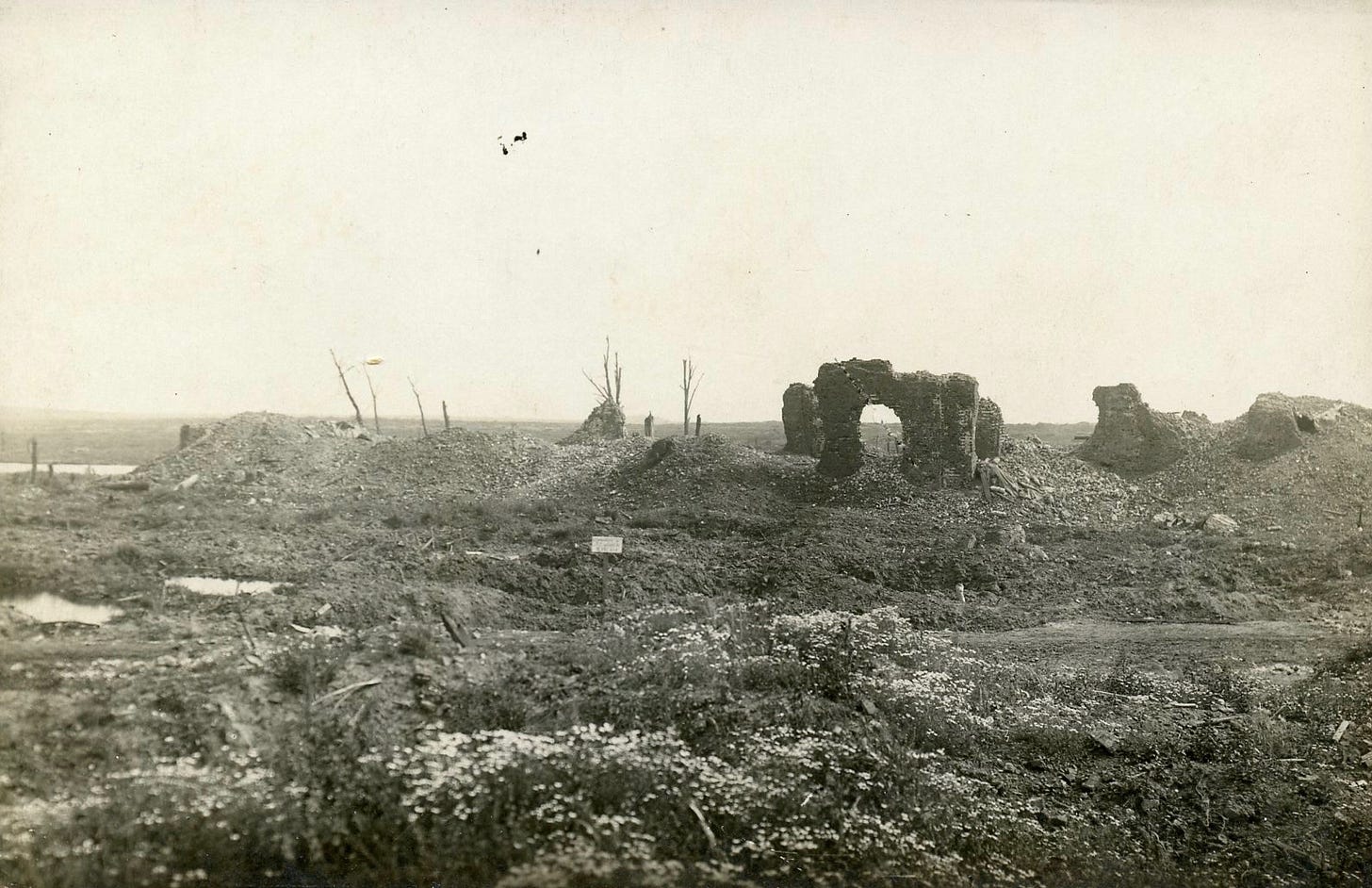Bravery Among the Doughboys in Flanders
The previous post about the 91st Division described the heavy fighting and loss of life in the Meuse-Argonne Offensive in France. After losing nearly a quarter of its men in four days of fighting, some elements of the 91st were withdrawn from the fighting while others stayed in the line until October 10, after which all marched to the rear and entrained for Belgium.
Arriving in helter-skelter fashion in Flanders, the men of the 91st marched from Ypres to a nearby town to organize themselves and take replacements. It was a desolate area that had witnessed four years of fighting. Barely a tree or building remained standing and the shelling, which had damaged the drainage systems built over the centuries, left the area a sodden mess.
After spending a week working with the replacements, the 91st was ordered to the front the evening of October 29, replacing the French 164th Division south of the Belgian village of Waeregham. There they overlooked a wooded knoll called Spittals Bosschen, beyond which was the city of Audenarde. They were subjected to periodic shelling, but unlike their experience at Meuse-Argonne, the Allies controlled the air over this section of Belgium so the German shelling was ill targeted. The division was to go on the attack the next morning.
Moving west to east, the Division attacked Spittals Bosschen at 5:30 a.m. on October 30. Once again, the 91st Division charged through heavy machine gun fire coming from the German machine gun nests hidden in the woods. 1st Lt. John Burgard who, in the Meuse-Argonne offensive, led an attack against German machine guns setting up to fire on the battalion command post, was now with H Company of the 362nd. Early in the attack, Burgard’s company commander was wounded, so Burgard took command and was leading the fight when a high explosive shell landed nearby. The concussion fractured his back. As he tried to rise, Burgard was struck by shrapnel that hit the trench mirror he kept in his breast pocket, likely saving his life, but the injuries sent him to the hospital. Lt. Ben Dorris was nearby and took command of H Company. While continuing the attack on Spittals Bosschen a shell exploded fifty feet from Dorris, taking down two men while leaving a third man, a corporal, untouched. Dorris instructed the corporal to tend to the wounded men. Minutes later, Dorris was struck in the face by shrapnel, a wound that broke his jaw and ultimately resulted in Dorris losing all his teeth, but Dorris stayed in command. Unable to speak, he coordinated his company’s attack using hand signals. The fighting went on through the day and the 91st finally enveloped and captured Spittals Bosschen. For his actions, Dorris was cited for valor by General Pershing and was awarded the Belgian Croix de Guerre. Four officers and forty-five enlisted men were killed that day and another 175 were wounded.
The Germans fled the area during the night, so the 91st was unopposed when they attacked again the following morning. They reached a crest overlooking Audenarde along the Scheldt River five miles away. They spent that evening and the next on the ridge before taking Audenarde opposed only by sniper fire and a limited number of machine guns. Audenarde proved to be the largest city captured by American troops during the war other than Château-Thierry. The capture of Audenarde pushed the Germans across the Scheldt. With the Germans in full retreat, they did not put up a credible fight over the next several days. More important for the men of the 91st, with the Germans now on the east side of the Scheldt, their mission was complete and they were withdrawn for a few days of rest on November 3.
Click here for options on how to support this site beyond a free subscription.




